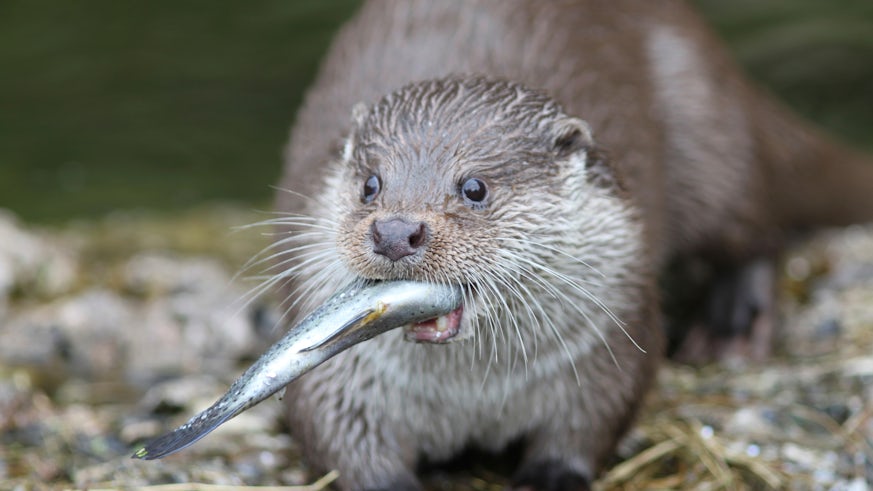Scientists grow concerned for the genetic health of otters in the UK
15 November 2022

The genetic health of otters in Britain could be putting them at risk despite conservation efforts, according to a long-term study by Cardiff University’s Otter Project.
Studying data across two decades, the team has mapped for the first time the changing pattern of otter genetics.
They found that while otter population numbers had recovered across the UK following a decline in the middle of the 20th century, there was a lag in genetic recovery.
It was expected that as the populations grew and previously isolated groups reconnected, that genetic diversity among the mammals would increase.
The new research shows that although there is movement between otter habitats, there is a lack of genetic diversity in the UK population, leaving them vulnerable to disease, which could risk conservation efforts.
Dr Nia Thomas, lead author on the study who is based at the University’s School of Biosciences said: “Otters have long been hailed as a conservation success story in the UK. Our study, however, highlights that we shouldn’t get complacent about otter recovery, as the genetic results tell a different story. Otters across the UK have yet to reconnect at the genetic level.
“Understanding why this has happened and what limitations may affect genetic mixing is crucial. More research is needed to understand if this delay in genetic diversity among the otter population will improve.”
Recent surveys such as The National Otter Survey Wales have shown decreases in otter populations.
Dr Elizabeth Chadwick, lead of the Otter Project at Cardiff University and co-author said: “This is something we should all be concerned about – not only are otters one of Britain’s best loved mammals, but they also provide a warning about the state of freshwater systems that we all rely on.
“Our findings paint a worrying picture and highlight an underappreciated aspect of population recovery.
“It also illustrates how genetic data is an integral part of conservation monitoring, to enable the potential vulnerability of populations to be evaluated.”
The Otter Project at Cardiff University is long-term environmental surveillance research scheme. The research relies on the public or authorities to report otters that have been found dead to investigate contaminants, disease, and population biology of otters across the UK.
The study, Country-wide genetic monitoring over 21 years reveals lag in genetic recovery despite spatial connectivity in an expanding carnivore (Eurasian otter, Lutra lutra) population, is published the journal Evolutionary Applications.
Share this story
The School has an international reputation for its teaching and research, and offers some of the top research-led bioscience curricula in the UK.




